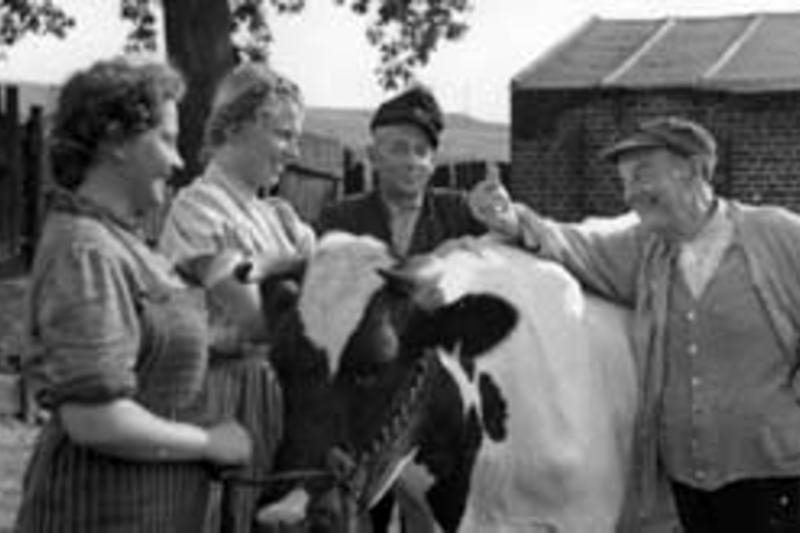
FREIES LAND
A FREE COUNTRY

The film tells of the new life begun by refugees after resettlement. The reconstruction of destroyed villages, the parcelling up of the land, and the emergence of reciprocal assistance structures among farmers – a compelling, close-up account of the changes to the rural environment, narrated with complex and experimental montage techniques. Despite the evident political intentions, the semi-documentary using nonprofessional actors is more than mere propaganda, reflecting as it does the hopes and dreams that prevailed in the immediate post-war period. A largely unknown and highly interesting document about the effects in the West Prignitz region of the land reform programme, and the second film produced by the DEFA.
35mm | s/w / b/w
Milo Harbich
Otto Baecker
Adolf Jansen
Heinrich Beisenherz
Werner Eisbrenner
Ursula Voß, Fritz Wagner, Herbert Wilk, Hans Sternberg, Aribert Grimmer, Peter Marx, Oskar Höcker, Elfriede Dugall, Kurt Mikulski
PROGRESS Film Verleih
Verleih/ Disposition
Immanuelkirchstr. 14b
10405 Berlin
Germany
Tel: +49.30.24 00 34 51
Fax: +49.30.24 00 34 59
Milo Harbich - born 1900 in Porto Alegre. Moved to Dresden in 1904, where he completed an apprenticeship in a perfume shop, taking lessons in acting and painting at the same time. Worked as an actor, trained as a cutter from 1930, then worked at the UFA as a cutter. Appointed head of the master class for editing at the Berlin Film Academy in 1983. Died in 1988.
BARBARA, WO BIST DU? (1939, short)
KRIMINALKOMMISSAR EYCK (1940)
WIE KONNTEST DU, VERONIKA! (1940)
KRÄUTERWEIBLEIN (1946, short, doc)
ACHTUNG, GEFAHR! (1948, short, doc)
MULHER DO DIABO (1952)